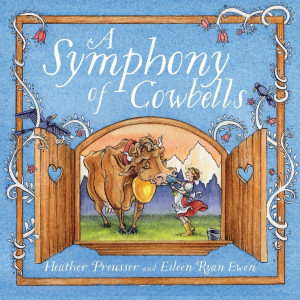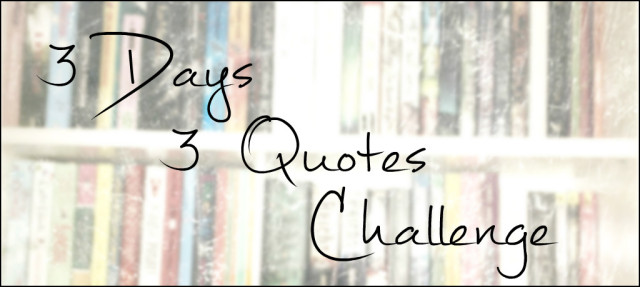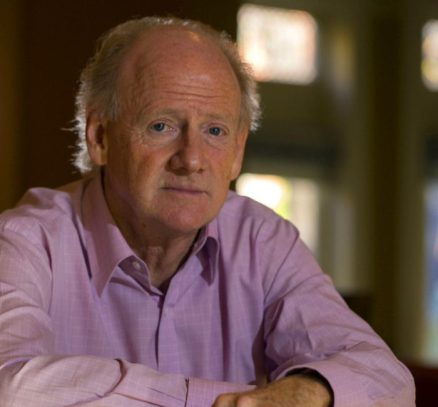
John Ralston Saul (Chris So w Toronto Star)
*edit, April 4, 2017 – I am adding in additional material. It won’t be much. But it’s very pertinent. And I’m utilizing, in one instance, the same source I’ve already used, namely Yves Engler, who points out that Pearson seemed to hold racist views toward First Nations. And, just by chance I came across a YouTube video today featuring a talk by Norman Finkelstein who happens to mention the genocide that Americans committed against First Nations, which reminded me of a point I wanted to make about what I consider the most stupid thing John Ralston Saul said in “A Fair Country.”
I don’t agree with John Ralston Saul on many things. And I do not trust him, which is an issue because I haven’t read as much as he has and I don’t possess the intelligence and mental power that he possesses. (How can I be right and Saul be wrong therefore?) But I know what I know, and how I feel, which knowledge and feelings are as real as I am. And I pay attention.
I know for example that the Canadian military, which Saul perversely says was formed out of various influences, including First Nations thinking and practices, cut its teeth warring against those First Nations. Perhaps it’s true that First Nations thinking and pratices have had some influence on the Canadian military, but when so much that he says about the Canadian military is demonstrably untrue…
Saul states that “I’m not suggesting that we have consciously constructed the nation’s military strategy out of Aboriginal experience.” Then he tries to make the case that the Canadian military’s tendency to do minimal impairment and to negotiate rather than waste lives in war, speak to the proximity – out on the fringes of the modern world – of soldiers to First Nations and indicates that First Nations ways rubbed off on them. Yes, You are close to those you are killing, unless you’re a drone operator or puke General.
“What is our attitude toward war? Minimal impairment. What has it been for a century and a half? Minimal impairment. We are loath to be drawn in. We would rather talk and negotiate.” -pg 89
Saul says the two World Wars were expceptions to that, thus peddling the myth of Canada the peacekeeper. Indeed, Saul goes on to say good things about war criminal (Noam Chomsky’s description) Lester Pearson (1897-1972). Consider:
“To understand the unbroken line of Canadian foreign policy and military stretching back four centuries, it is enough to ask a simple question. Where did the concept of peacekeeping come from? As if pulling a mysterious solution out of a hat, Lester Pearson produced and sold a way to end the 1956 Suez Crisis that was dividing the West, the North Atlantic Treaty Organization (NATO), the North and the South, the Judeao-Christian and Islamic… The idea of a United Nations peacekeeping force and the sort of military diplomacy that surrounds it… was an expression of minimal impairment.” -pg 93 of “A Fair Country”
The astonishing thing about Saul’s fake praise for First Nations and his establishment mythologizing about ‘peacekeeper’ Lester Pearson is that the connection between the two is Pearson’s apparent antipathy toward First Nations who Saul’s beloved NWMP and Canadian military warred with. “Not until after Pearson’s time as foreign minister were Status Indians able to vote and it was only three years into his term that the Indian Act was amended, allowing First Nations to pratice their religious/cultural ceremonies (such as potlatches, pow-wows, sweat lodges and sun dances). In short, the state that Pearson represented internationally was a successful colonial enterprise. On at least one occasion he explicitly equated foreign policy with the subjugation of First Nations. In an April 1951 speech to the Canadian Club about Korea and the Cold War Pearson said: “We are faced now with a situation similar in some respects to that which confronted our fore-fathers in early colonial days when they ploughed the land with a rifle slung on the shoulder. If they stuck to the plow and left the rifle at home, they would have been easy victims for any savages lurking in the wood.” -page 143 of “Lester Pearson’s Peacekeeping – The Truth May Hurt” by Yves Engler
The point isn’t that First Nations ‘could not’ be savage in resisting their dispossession and enslavement at the hands of invaders. The point is that the aggressors here were the foreigners, namely the imperialists, whether British, American or Canadian.
Which brings me to another point or observation, namely Saul’s asinine statement about First Nations having never been expelled from the Garden of Eden. He quotes, with approval, Tomson Highway, in the following passage: “…the First Nations had never been, as Tomson Highway pointed out… expelled from the Garden of Eden. That means two things. No god has separated the people from the land. The land is therefore neither the enemy nor a lost paradise. Second, there is no built-in social concept of guilt.” -pg 281
Huh?! What Saul and his Christianity-hating friend are saying here is that First Nations people are perfect. And if they don’t know that that’s what they’re saying…
“Unlike The US during speaking trips in Canada major media would interview me. But, the discussion would invariably concern US foreign policy… The first time I was on CBC radio’s Morningside with longtime host Peter Gzowski… He seemed happy to hear criticism of the US. One time I decided to talk about Canada. After a question about flying in I said, “I landed at war criminal airport”. He said: “What do you mean?” I responded, “the Lester B. Pearson Airport”. Gzowski replied “war criminal?” So I detailed Pearson’s support for the war in Vietnam: the spying, weapons sales and complicity in the bombing of the North. Gzowski was infuriated.” -pg 8 of “Lester Pearson’s Peacekeeping – The Truth Will Hurt,” by Yves Engler
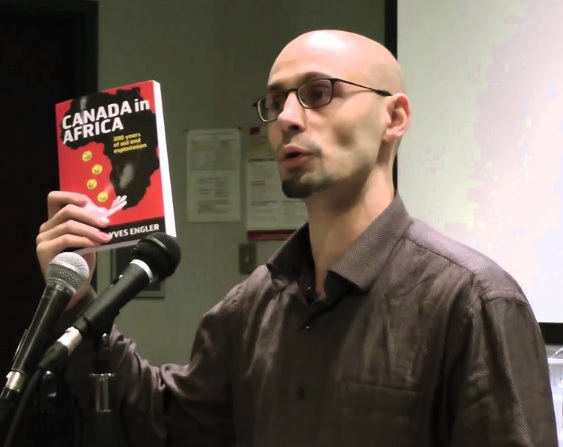
Yves Engler (photo from this source: http://bit.ly/2nYVAh3)
“Pearson wholeheartedly supported NATO. In his Memoirs he described the “formation of NATO” as the “most important thing I participated in”. Canada and NATO explains: “There would not again be, in Canada, the enthusiasm for the North Atlantic alliance there was in that close to 9 years that Louis St. Laurent stood behind it as the country’s Prime Minister, and Lester Pearson as its Secretary of State for External Affairs.”
“Pearson was not above red-baiting those who criticized NATO policy. When the Co-operative Commonwealth Federation (CCF) opposed a massive build-up of NATO troops in Europe in 1953, he claimed “the CCF seems to be moving towards that [Russian] position.” Pearson said the social democratic party’s statement would “play straight into the hands of communist propaganda” and “that is exactly how the Kremlin would describe them.”
“Officially, NATO was the West’s response to an aggressive Soviet Union. But, the Cold War can be traced back to Canada and its allies 1917 invasion of Russia, attempts to isolate that country throughout the 1920s and support for the Nazis anti-Bolshevik posture. To get a sense of Pearson’s hostility toward Russia, in 1938 he said he hoped the Nazis and Soviets would destroy each other.” -pgs 27 & 28 of “Lester Pearson’s Peacekeeping”
Is such red-baiting and expressions of desire for slaughter your idea of dialog over war John?
Saul is very establishment. Along with all of our major political parties and even the Council of Canadians for gosh sake, he peddles the myth of Lester Pearson the peacekeeper, which figures, as there’s nothing Saul loves as much as establishment. But he’s a good talker, the way arch neoliberal Jeffrey Sachs is. Immerse yourself in the facts, or you’ll think Saul is on your side when he’s through casting spells.
“Forty years after his death the former external affairs minister still features regularly in foreign policy debates. In September 2009 Liberal leader Michael Ignatieff said his government would “take global leadership that has made Canada’s reputation since the time of Lester B. Pearson. …A Canada that inspires, leads the world by example, and makes us all proud.” A few months later the head of the Greens, Elizabeth May, claimed “a Green Party approach to international issues will return Canada to the values of Lester B. Pearson.” For his part, the late NDP leader Jack Layton dropped his name during a June 2010 House of Commons debate. “Recently, we had the UN special advisor, Jeffrey Sachs, slamming our Minister and saying that Canada was failing to live up to the tradition of Lester Pearson by falling far short of his target for international aid.”
“It’s not only politicians who sing his praise; many leftwing commentators echo this view. In a May 2008 Toronto Star column titled “Keep Pearson out of it” Linda McQuaig took exception with “[former Liberal minister] John Manley, head of the government’s advisory panel on Afghanistan, defend[ing] the mission by invoking the name of Canadian peacekeeping hero Lester Pearson.” Author of a 2007 book that covered his foreign policy, McQuaig quoted an academic who called this a “real desecration of [Pearson’s] memory and his monumental achievement for world peace.”
“The president of the Rideau Institute, Ottawa’s most left-wing foreign policy think tank, has made similar statements. Steven Staples co-authored a 2008 article explaining “Pearson’s vision of the Canadian military supporting the United Nations in negotiating solutions has been replaced by an Americanized vision of militaristic solutions imposed by force of arms.” Left wing author Naomi Klein also dabbled in the mythmaking. In a 2000 Globe and Mail piece she referred to a Liberal Party campaign focused on “Lester Pearson’s legacy of international compassion.”” -pgs 14 & 15 of “Lester Pearson’s Peacekeeping”
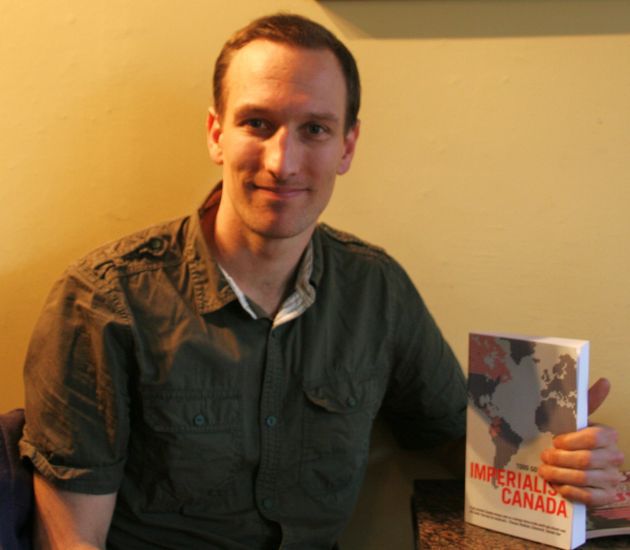
Todd Gordon (photo by Miles Howe)
Todd Gordon notes that “…there is no meaningful evidence that peacekeeping has any substantive bearing on Canadian foreign policy today. The mainstream left, such as the NDP and NGOs like the Council of Canadians, do the opposition to the war in Afghanistan a disservice by continuously repeating the unsustainable assertion that Canada is a peacekeeping nation with a history as a benign international force to which it should return.” (pg 402 of “Imperialist Canada”) John Ralston Saul also performs that disservice. So do other lefties, like the Rideau Institute’s Steven Staples, Linda McQuaig and Naomi Klein, whose book “This Changes Everything – Capitalism vs The Climate” blames all of the world’s woes on God and Christianity, which is fashionable on the Left, as is praising and recommending First Nations spirituality.
Like Saul, who’s fond of the fancy term “Judeo-Christian,” The Christianity Naomi Klein knows is not mine. It’s her’s. And Saul’s. No, They aren’t Christians (I don’t know what Saul claims to be in that regard.), but the (which is what I mean by ‘their’) Christianity, which they know and attack, is not mine. Are they ignorant of my Christianity? I don’t think so. I think it’s something darker. They seek to make me disappear entirely, while they both yammer on about the exclusion of some by those with power and privilege. They can’t function, the way they want to function, namely as part of the establishment, by acknowledging and defending the few Christians whose behavior isn’t worldly. We few Christians who denounce Christendom (false Christians – who twist God’s word and add pagan customs and ideas into their Christian thinking and behavior – and their worldly churches) are those spoken of by the prophet Ezekiel (chapters 38 & 39), who possess neither bars nor doors (worldly allies) and are seen by Gog (Satan) as being easy pickings. Gog means ‘darkness’.
“For starters, the Canadian military has historically always been more than a peacekeeping force. As I discussed earlier in the chapter, the military’s response to indigenous uprisings in the Northwest Territories in 1885 or at Oka in 1990 were certainly not peacekeeping missions. Since the Second World War, the Canadian military has participated in at least five imperialist interventions in foreign countries: Korea (1950-1953), Iraq (1991), Yugoslavia (1999), Haiti (2004) and Afghanistan (since 2002). Canada did not participate in the Vietnam War. But it did sell billions of dollars of war materials to the U.S. at the time, and used its seat on the International Commission of Control and Supervision – the international force established in 1954 to oversee the implementation of the Geneva Accords that ended the First Indochina War – to support the America war effort. Canada sent two naval destroyers to the region near the end of the U.S. war to back up Canadian soldiers serving with it. And while Canada did not officially participate in the 2003 Iraq War, Canadian soldiers and officers on exchange programs have nevertheless been fighting with the America military and taking command positions in the occupying forces.” -pg 305 of “Imperialist Canada,” by Todd Gordon.
Elsewhere in “Imperialist Canada,” Gordon notes that “Military and paramilitary assaults against indigenous nations have been a formative part of Canada’s development. The military and the Royal Canadian Mounted Police (RCMP) (in a previous incarnation the Northwest Mounted Police [NWMP]) cut their teeth fighting First Nations for their land, resources and political and economic sovereignty.” -pgs 278 & 279
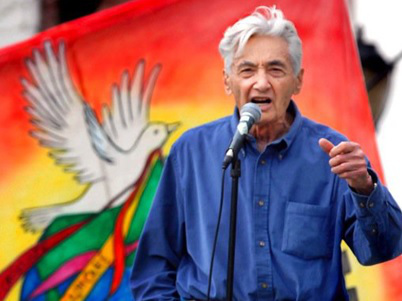
Howard Zinn (source for photo: HowardZinn.org)
Saul peddles the myth of statesman Lester Pearson, which Yves Engler debunks nicely in his book “Lester Pearson’s Peackeeping – The Truth Will Hurt.” And Howard Zinn has a very different take on the “brilliant language” of the American Revolution which Saul refers to on page 252. Saul acknowledges that there was a gap between the language and the reality of that language that didn’t even begin to be addressed until the assault on segregation in 1960, but Zinn talks about the founding fathers’ language itself and how phony the words were, deriving as they did from highly class conscious men of wealth and privilege. Then again, Zinn can get into the nitty gritty of the “brilliant language” of America’s founding fathers because he isn’t pro class war nor anti (any) people.
“In Virginia, it seemed clear to the educated gentry that something needed to be done to persuade the lower orders to join the revolutionary cause, to deflect their anger against England… It was a problem for which the rhetorical talents of Patrick Henry were superbly fitted. He was, as Rhys Isaac puts it, “firmly attached to the world of the gentry,” but he spoke in words that the poorer whites of the Virginia could understand… Tom Paine’s Common Sense, which appeared in early 1776 and became the most popular pamphlet in the American colonies, did this. It made the first bold argument for independence, in words that any fairly literate person could understand: “Society in every state is a blessing, but Government even in its best state is but a necessary evil…”
“Common Sense went through twenty-five editions in 1776 and sold hundreds of thousands of copies….
“Paine’s pamphlet appealed to a wide range of colonial opinion angered by England. But it caused some tremors in aristocrats like John Adams, who were with the patriot cause but wanted to make sure it didn’t go too far in the direction of democracy…
“…But his great concern seems to have been to speak for a middle group…
“Once the Revolution was under way, Paine more and more made it clear that he was not for the crowd action of lower-class people – like those militia who in 1779 attacked the house of James Wilson. Wilson was a Revolutionary leader who opposed price controls and wanted a more conservative government than was given by the Pennsylvania Constitution of 1776. Paine became an associate of one of the wealthiest men in Pennsylvania, Robert Morris, and a supporter of Morris’s creation, the Bank of North America.
“Later, during the controversy over adopting the Constitution, Paine would once again represent urban artisans, who favored a strong central government. He seemed to believe that such a government could represent some great common interest. In this sense, he lent himself perfectly to the myth of the Revolution – that it was on behalf of a united people.
“The Declaration of Independence brought that myth to its peak of eloquence…
“Some Americans were clearly omitted from this circle of united interest drawn by the Declaration of Independence: Indians, black slaves, women…
“When the Declaration of Independence was read, with all its flaming radical language, from the town hall balcony in Boston, it was read by Thomas Crafts, a member of the Loyal Nine group, conservatives who had opposed militant action against the British. Four days after the reading, the Boston Committee of Correspondence ordered the townsmen to show up on the Common for a military draft. The rich, it turned out, could avoid the draft by paying for substitutes; the poor had to serve. This led to rioting, and shouting: “Tyranny is Tyranny let it come from whom it may.”” – from chapter 4 of Howard Zinn’s “A People’s History Of The United States”
Speaking of language, What Saul points to as Pearson’s noble goals aren’t even noble. Pearson’s concerns around Suez weren’t for the rights and lives of Egyptians, as Engler notes (pgs 85 & 86), but for the partnership between two of the world’s bloodiest, cruelest empires, the British and the American, always with a view to how he could position Canada so that it got favor in the eyes of what Pearson recognized was the world’s rising hegemon, the United States. As for the ‘welfare’ of NATO, You have to be particularly messed up, or establishment, to view that as an important goal.
Saul writes that “And if our economic and social system exists in denial of our physical reality, then our society simply won’t function.” Considering the lengths Saul goes to make the case, the way Naomi Klein does, that Christianity – the Judeo-Christian tradition (pg 280) – is the root of all our problems, without acknowledging, as I’m sure the knowledgeable and imaginative Saul (and Klein) is capable of doing, that that tradition is only a part of the whole of Christianity, then I’m not sure that he can be taken seriously. The Christianity that Saul knows may be the larger part – which partly explains why people like Saul give it this treatment (rebels can be ignored, unless they are Saul’s rebels) – but it isn’t the only part. By far, Most of those who profess to be Christians are found within Christendom, which is depicted in the Christian Bible as a harlot, for obvious reasons. Christians collectively are supposed to be in a special bride relationship to their Lord, Jesus Christ (Matthew 25:1-13). To the extent that they stay within Jesus’s ‘word’ and in that way defend God’s standards and do not allow the world’s darkness to swallow up their light, they demonstrate their faithfulness to Jesus and by extension Jehovah God. However, As Jesus himself prophesied, “Many will say to me in that day: ‘Lord, Lord. Did we not prophesy in your name and expel demons in your name and perform many powerful works in your name?’ And then I will declare to them: ‘I never knew you! Get away from me you workers of lawlessness!'” (Matthew 7:22,23) Note the word “many” in Jesus’s above statement. And note Saul’s “our society.” I don’t actually want Saul’s godless, class-divided, bloody society to work.
The Christianity that Naomi Klein and John Ralston Saul ‘know’ is not mine. And they ‘know’ no other, willingly and knowingly. And in that way, they disappear me and those who, like me, have no use for a thoroughly deviant Judaism and a thoroughly disloyal and bloodstained Christendom. And, I might add, That anti God attitude, made especially poignant by being attended by a latching onto religiosity that is demon-inspired, is fashionable on the Left. (In other words, “It’s not religion we have a problem with, God. It’s just you.” I call that sort of perversity ‘calling to God to “Bring it!”’) What was it Saul wrote? “The arrival of more conscious voices at the public tables, voices less likely to be swayed by fashion, is a step toward the ethic of fairness.” -pg 319. Perhaps Saul should take his own advice and ‘rebel’ against the leftwing fashion of disappearing the few Christians who are loyal to God and who endeavor to uphold his standards, which the Christians who Saul ‘knows’ have rebelled against. -pg 318.
So much of what Christendom calls Christianity is paganism. Christmas and Easter, based on Bible information, are both derived mostly from pagan practices and riddled with lies. Take for example, the Christian legend of the 3 wise men. The Bible doesn’t give a number for the ‘wise’ men who went, they seemed to think, to show obeisance to the infant Jesus, but the faithless Churches, and those who unhelpfully criticize them, go along with the made up fact (of German origin) that there were three wise men. German tradition even gave them names! None of it is in the Bible. As for those so-called wise men, They are the only ones who saw the star that they saw and which was leading them to the infant Jesus. When Herod, who wanted to kill Jesus, learned about the visitors’ goal, he asked those astrologers from Babylon, a pagan hotbed and longtime enemy of ancient Israel, to let him know where the infant is once they found him. They would have done so had God not warned them off in a dream (Matthew chapter 2). The star that John is following? I don’t see it, thankfully. Does any of that sound like anything taught in Christendom’s unholy churches? Do any of the above facts make it into Christmas carols? And neither Saul nor Klein condemn Christianity for that sort of behavior. That’s because they simply hate anything connected with the Christian Bible, whether it’s decent or indecent.
Then there’s the evil of Christendom’s representatives calling the League of Nations (which became the United Nations) the political expression of the Kingom of God on earth.
I think imagination is wonderful. But it looks to me like John Ralston Saul’s “imagination” is rebelliousness. He just wants to break free from all ethical constraints. (I can see how he might choose to use as examples of good capitalists people like Peter Munk, who poohed poohed the rapes his mining employees committed, claiming that that’s their culture.) But I don’t know that I would have done so, without qualification. (Does that make me timid? Or does that make Saul incautious? Or is it an indication of something darker?) And he’s good at making that seem reasonable, by omitting inconvient facts and twisting the truth. The wide gate onto the spacious road that leads to destruction (Mattew 7:13,14) is that way because there are no rules. Or, There are no rules, written and unwritten, that can’t be broken. The road that leads to life (success) is cramped and narrow. Rules make it thus. You can’t do this and you can’t do that. Depending on who explains that, the restrictions can be an oppressive thing or a liberating thing. If I told my young son that in order to get home safely, if he should ever somehow get separated from me in a crowd, he needed to find someone in authority – a store owner, a policeman or anyone in a uniform – and ask for help and to be careful crossing the street and to wait for the green light before crossing the street and to not cross the street without looking around just to be sure cars aren’t going through the green light, Would that be an act of oppression?
I believe that rules should be ‘for’ the people, not ‘against’ them. (pro NATO, pro Canadian military, Pearson the peacekeeper myth purveyor John Saul says he’s against the state’s pursuit of “order” over “welfare.”) And I believe that they shoud be for ‘all’ the people, not just the 1%. I also grasp Noam Chomsky’s common sense notion that when authority cannot justify its use of coercion, then that renders it, not illegal, but illegimitate. And he goes on to point out that such organizations and agencies should be destroyed. Those with power and influence think that because I am a Christian and choose to uphold Jehovah’s standards, I should be destroyed, after a fashion. ‘Disappeared’ if you like. Apparently, To be progressive, I must embrace paganism, either First Nations’s paganism or some other, depending on the agent of darkness you talk to. And note, I am not an enemy of First Nations. I have no use for their spirituality, which they tend to force on others (who usually don’t object because they don’t care or/and because it’s advantageous in some way). First Nations don’t have to embrace my Christianity in order for me to recognize their victimization at the hands of the imperial Canadian state. We will all soon be corrected. That correction will be extreme in some cases and not fatal in others. But there’s no escaping it.
“Any kind of illegitimate authority that exists, whatever it may be, from interpersonal relations up to huge states and transnational corporations, every such form of authority has to demonstrate legitimacy. They have the burden of proof, and we should understand that usually, very often, almost always that burden can’t be met. When it can’t be met, it should simply be dismantled. And that’s the way to move more towards a free and just democratic society.” – Noam Chomsky interview with Tom Morello
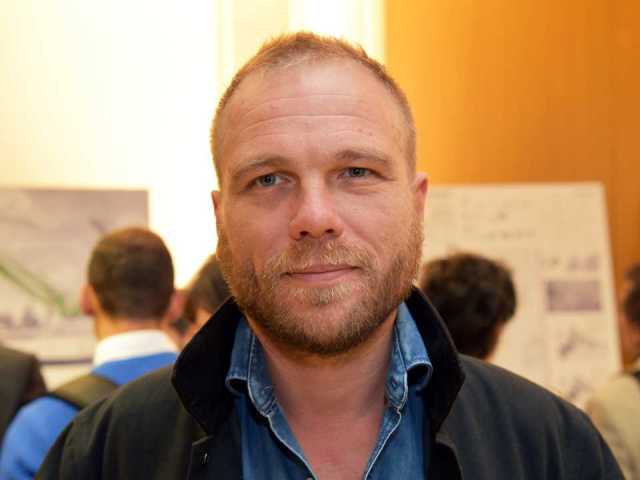
Japhy Wilson (source of photo: http://bit.ly/2ntu4Hb)
John Saul likes brilliant language. He would have swooned to hear the following then:
“The epicentre of these protests was Occupy Wall Street in Zucotti Park… At some point around midday, a clean-cut middle aged man arrived in the park, and began to address the crowd. He started by critizing the Wall Street Journal for its dismissal of the Occupy movement, before attacking hedge fund managers, businessmen, and a series of banks and corporations… As they cheered him on, the man became increasingly agitated, gesticulating violently, his voice shaking with emotion:
This is a democracy! We are the 99 per cent! We have the votes! You [the corporations and the hedge funds] may have the money, but we have the votes … And across America they’re hearing this message…“These words might seem unremarkable on a global Day of Rage. Similar things must have been shouted at many protest sites that day. Yet this man was not a typical grassroots agitator. This was Jeffrey Sachs – development guru and ‘rock star economist’. Sachs has advised the governments of over 40 countries… He is a friend of the stars, accompanying Bono, Madonna, and Angelina Jolie on high-profile journeys to Africa to publicize the plight of the continent…
“In short, Jeffrey Sachs is a man of considerable power and influence on the world stage. It was therefore rather suprising to find him making such a radical and impassioned speech at Occupy Wall Street. Surprising, you might say, but was it not all the more commendable for that? How uplifting, in these cynical times, to see a person of such status who is unafraid to take a principled stand. Perhaps… yet something doesn’t quite ring true. In the first place, Sach’s claim to represent the 99 per cent sounds rather strange, given that he earns over US$300,000 a year and lives in an US$8 million Manhattan townhouse. And his demonization of bankers, businessmen, and politicians who ‘sup with the rich and billionaires’ is also rather odd, considering his own close working relationships with billionaire financiers such as George Soros and Ray Chalmers. His attack on corporate power is equally suprising, in light of his collaborations with multinational corporations such as GlaxoSmithKline, Merck, Monsanto, Nike, Novartis, and Pfizer. It also seems rather peculiar that Sachs should attack the Wall Street Journal, given that he has written for it in the past, using it as a platform for his triumphant celebration of the demise of communism…
“In other words, Jeffrey Sachs played a central role in the contruction of the very same neoliberal system that he is now so vocally opposing.” – pgs 1-3 of “Jeffrey Sachs – The Strange Case Of Dr Shock And Mr Aid” by Japhy Wilson.
Remind you of anyone?
I have other issues with John Saul, but this post is long enough and makes my case that Saul is establishment to the core. He has some deluded idea that the EU is making progress and sets a good example, for example. I almost didn’t read the book, I was so put off by it. I don’t think I need to immerse myself in darkness in order to be enlightened. But it didn’t kill me, and I didn’t have to kill anyone else, to read the book which I had already bought. And that’s what exploring is. You don’t explore because you know that everything you discover will be awesome. Not in this world. You explore because you’re curious, because you seek things and places in life that will work for you. In this world, About 1% or 2% of what you discover will work for you. The rest you’ll say no thanks to. But you explore for that 1% of things and places that you want. The alternative is to curl up into a fetal position and die in fear and ignorance and isolation.
Rate this:Share this:- Share

